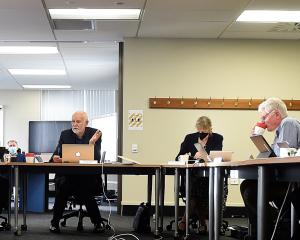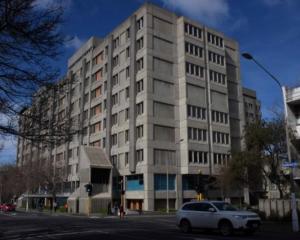The Southern District Health Board has been criticised for failing to recognise the risks of clozapine toxicity to a patient who had twice attended its emergency department shortly before her death.
Otago-Southland coroner David Crerar found the death of Marion Gwen Novak (49) in Dunedin on August 25, 2011, was caused by seizure disorder, clozapine toxicity, and complications of chronic treatment-resistant schizophrenia. Ms Novak was taking, as prescribed, 800mg of the anti-psychotic drug clozapine a day; the dose had been reduced, in June, from 900mg.
''Regrettably, due to either an inability ... to metabolise the drug as was expected, or for other reasons, the clozapine accumulated to a level which proved toxic to her as an individual with her risk factors,'' Mr Crerar wrote in his finding, released yesterday.
She had attended Dunedin Hospital's emergency department twice in June after suspected seizures.
''Marion Novak was admitted to Dunedin Hospital on two occasions prior to her death. The observations made then should have placed both the emergency department and the mental health services on notice. There appears to have been no cross-checking of patient files between the two branches of the hospital. The information as to a rapidly developing serious situation was there, and was there to be seen,'' Mr Crerar wrote.
''The Southern District Health Board had the opportunity to provide better care for [Ms Novak] and the evidence has proved to my satisfaction that systems within the board's operation did not allow for appropriate messages to be recorded and disseminated.''
Through a spokesman, health board chief medical officer Dr David Tulloch said yesterday in response to the written finding: ''We acknowledge the coroner's findings. We accept that we could have done better and have apologised to her family. We are working to ensure that processes are in place to prevent this from happening again.''
Clozapine is associated with increased risk of seizures at doses of more than 600mg a day.
Mr Crerar's written finding shows that on the first ED visit, Ms Novak was found to have abnormal heart activity associated with clozapine toxicity, but the mental health service was not notified.
''In my view, there was more than sufficient evidence for the Southern District Health Board to have recognised the problem and taken action to address it,'' Mr Crerar wrote.
After the death, the board adopted clozapine guidelines that included recommending annual clozapine serum level checks for patients receiving more than 600mg a day.
Mr Crerar said it was regretful the board had not adopted the guidelines earlier, given another patient died in March of that year from clozapine toxicity.
He was also surprised to find that each health board determined its own guidelines for administering drugs.
''The fact that each board appears forced to create an independent document seems to be a waste of resource.''
He recommended the Ministry Of Health consider a more centralised system of clinical advice on such matters.











